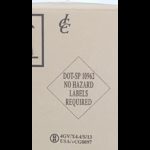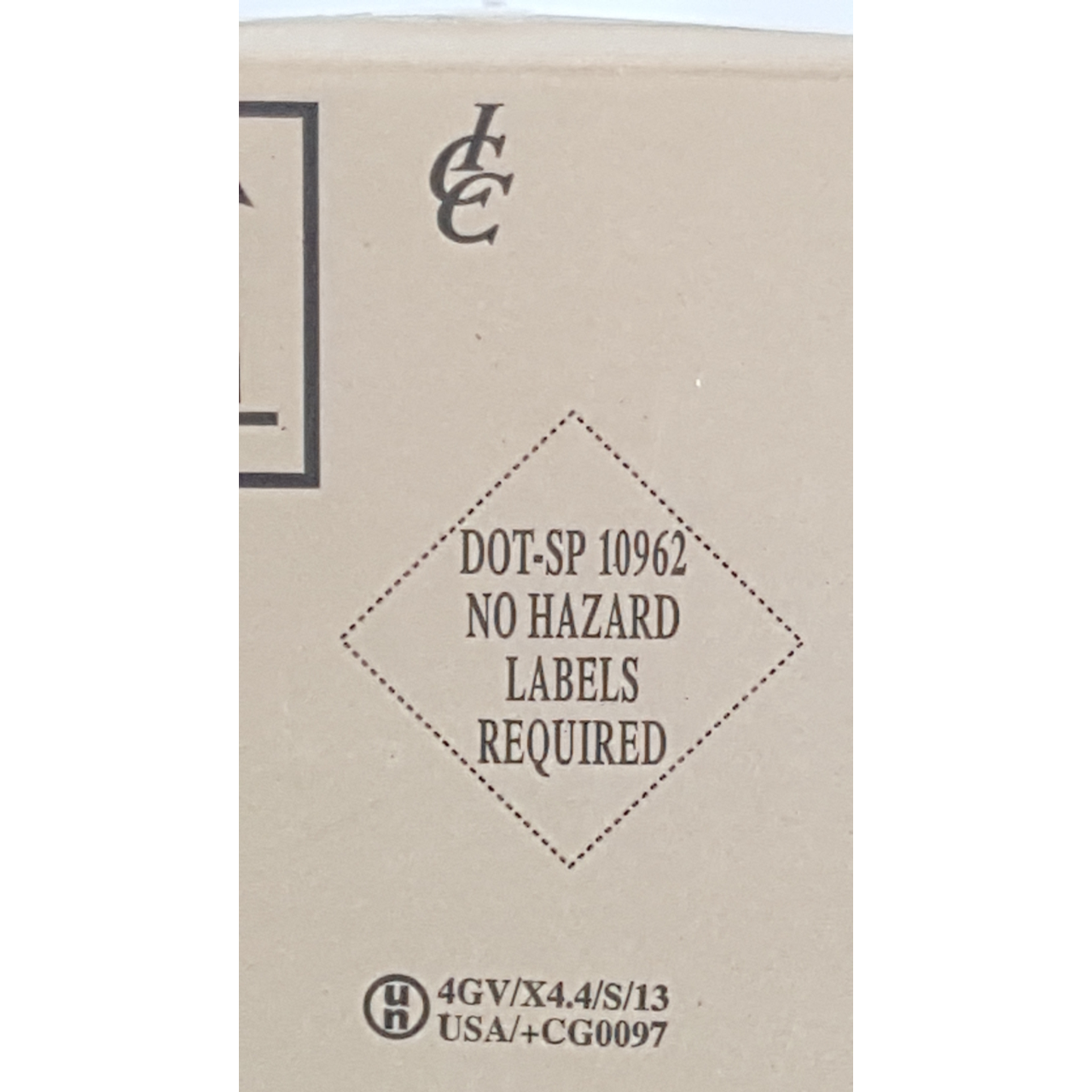The Hazardous Materials Regulations (HMR) contain everything you need to know about the transportation of hazardous materials in commerce; or do they? The Pipeline and Hazardous Materials Safety Administration (PHMSA) within the US DOT understands that in some situations a hazardous material may be transported safely even when not in compliance with the HMR due to technological advancement, additional safety precautions unforeseen by the PHMSA, or an emergency situation such as war or natural disaster that may require temporary relief from the full HMR. It is for those reasons – and others – that special permits, approvals, exemptions and regulatory exceptions were created. I will briefly summarize the characteristics of these regulatory extensions, how they may be of use, and where more information is available.
Special Permits:
A special permit may be requested for any aspect of the HMR and is defined at 49 CFR 171.8 as, “a document issued by the Associate Administrator, or other designated Department official, under the authority of 49 U.S.C. 5117 permitting a person to perform a function that is not otherwise permitted under subchapter A or C of this chapter, or other regulations issued under 49 U.S.C. 5101 et seq. ( e.g., Federal Motor Carrier Safety routing requirements).” Special permits – once known as exemptions; the name was changed because it sounded too much like an exception (more on that later) – may be granted to an applicant for an emergency situation, or when a safe alternative to the HMR can be demonstrated.
The application must meet the requirements of 49 CFR 107, Subpart B and include evidence that the special permit will achieve the same safety level of the HMR or is consistent with the public interest (ie. the benefit to the public of the special permit outweighs the risk, such as in an emergency). PHMSA’s review of your application will include an evaluation of your compliance history, I don’t suggest you request a special permit for something you have been issued a violation.
If the special permit is granted, compliance with its requirements are the responsibility of the applicant; this includes training HazMat Employees on its conditions and submitting a new application prior to its expiration date. Your requirements are the same if your application creates a new special permit or you apply to be a party to an existing one. You need not be party to a special permit if you are a carrier forwarding a hazardous material under someone else’s special permit as long as you do not re-package the HazMat.
A guidance document with more information about special permits can be found here. If you wish to learn if a special permit exists that you may wish to be a party to, a Special Permit Search Tool can be found here. The search capability is limited however, so you might be best served by speaking directly with the HazMat Info Line @: 800.467.4922. It is not uncommon for some or all of the conditions of a special permit of proven safety to be converted to a regulatory exception by the PHMSA. In this case the conditions of the former special permit are codified in the regulations and are available for use by all of the regulated community. More on exceptions in just a little bit.
Approvals:
Approvals – similar to special permits in many respects (see here for a point-by-point comparison) – are defined at 49 CFR 171.8 as, “a written authorization, including a competent authority approval, from the Associate Administrator or other designated Department official, to perform a function for which prior authorization by the Associate Administrator is required under subchapter C of this chapter (49 CFR parts 171 through 180.)” The biggest difference between a special permit and an approval is that the HMR must contain a specific allowance for the approval in order for it to be issued. If no specific allowance is present in the HMR, then a special permit must be requested in order to get relief from the regulations. Other characteristics of an approval include:
- May offer relief from the regulations if a level of safety can be guaranteed or the public interest is served.
- A written application must be submitted and written documentation of approval granted.
- May cover domestic or international transportation (special permits are good for domestic transportation only).
- Unlike special permits, you may not apply to be party to an approval; each approval is specific to its applicant.
- Unlike special permits, approvals typically do not have an expiration date and are valid until terminated, there is change in the product or circumstances, or it is incorporated into the HMR.
More information about approvals – including search tools – can be found here. If unable to find what you need, I again recommend you to the HazMat Info Line @: 800.467.4922.
Exceptions:
Special permits (formerly known as exemptions) and approvals – after many years – may find themselves codified in the HMR as exceptions if they have been proven to achieve an adequate level of safety or serve the public interest. Once made into an exception, they are available for use by anyone without written approval from PHMSA. Exceptions can come in many different forms and are found throughout the HMR. Some of the most common/useful include:
- Small Quantity per 49 CFR 173.4.
- Limited Quantity per 49 CFR 173.150, 151, 152, 153, 154, 155, 156 and 173.306.
- Consumer Commodity per 49 CFR 173.150, 151, 152, 153, 154, 155, & 156.
- Materials of Trade per 49 CFR 173.6.
- Combustible Liquids per 49 CFR 173.150(f).
When shipping HazMat you may come upon an occasion where the HMR does not allow you to do something you feel necessary; don’t give up, there may be a regulatory exception that fits just what you are trying to do, the authorization to request an approval may exist, a special permit may already exist that you may apply to be party to, or PHMSA may grant your request for a new special permit. In any case, awareness of the regulations through training will help you have a better understanding of the options available to you, and hey; training is what I do! Join me at one of my nationwide open enrollment training events to learn about the regulations pertaining to the transportation of HazMat and the US EPA regulations regarding the handling of hazardous waste. This one day of training fulfills the regulatory requirements of the PHMSA for the transportation of HazMat Employees per 49 CFR 172, Subpart H and those of the US EPA for Large Quantity Generators of hazardous waste per 40 CFR 265.16.


